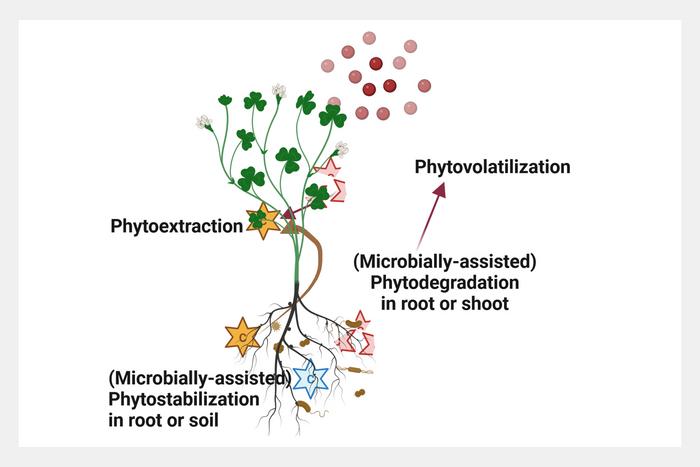Even organic farmers use toxic pesticides but because they are older and less effective they must use a lot more. A new literature review posits that organic farmers, and conventional as well, can reduce effects on soil using cover plants. Most farmers grow cover plants, animal feed or just plants to lay there and decompose, between main crops to supply the soil with nutrients before the next planting. They also protect against erosion and may increase biodiversity above and below ground.
Though cover plants are well-established in science, many industrial sites are remediated that way, the authors say the benefits of phytoremediation are not as prominently discussed as they should be.

Credit: ©UFZ
So they analyzed papers which claim cover plants have the ability to break down contaminants and can break down or fix the pollutants in six categories - nitrate, salts, metals, pesticides, plastics and antibiotic resistance genes. Then they codified strategies. They believe rye and sunflower could be used as cover plants to prevent excess nitrate in the arable soil from being washed out and polluting the groundwater. It can remain on the field as organic "green" manure, the kind that won't give us E. coli. Cover plants like clover, rye or rape that remove cadmium from the soil should be removed and can't be animal feed but could some day be used for biogas. Seeds of mustard remove pesticides from the soil in the same way as grass or sunn hemp.
Next up is a field study to prove how effective it is, together with farmers as part of the SmartManure project.






Comments